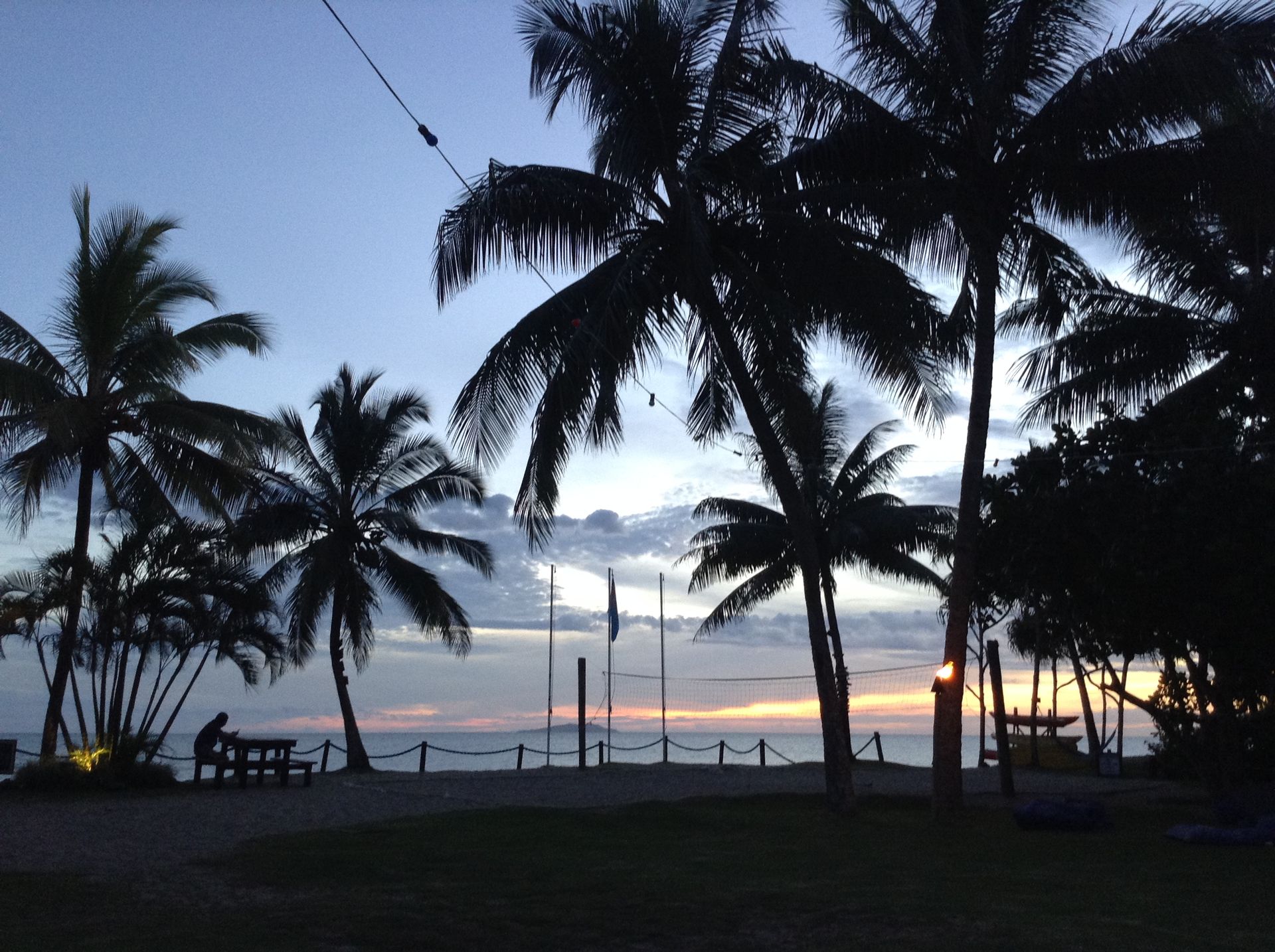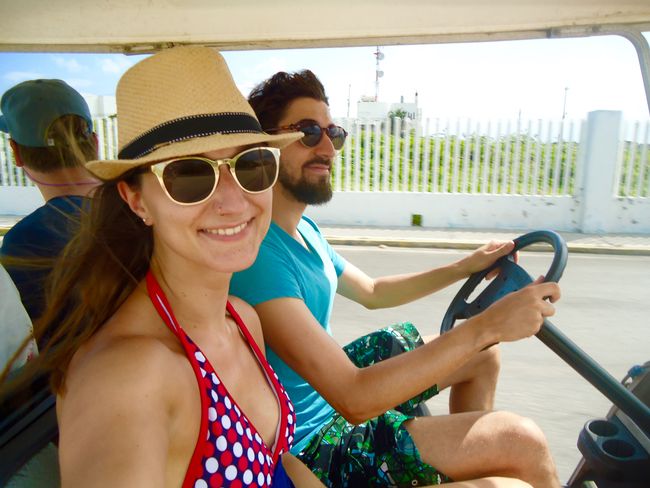Cusco and the Supernatural
Dɛn dɔn pablish am: 02.12.2017
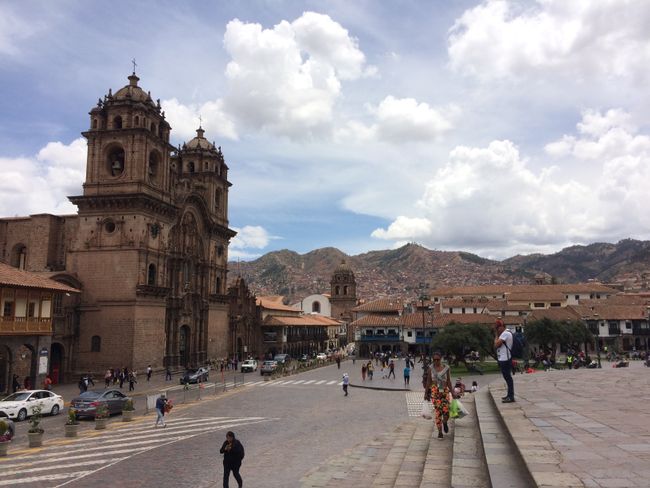
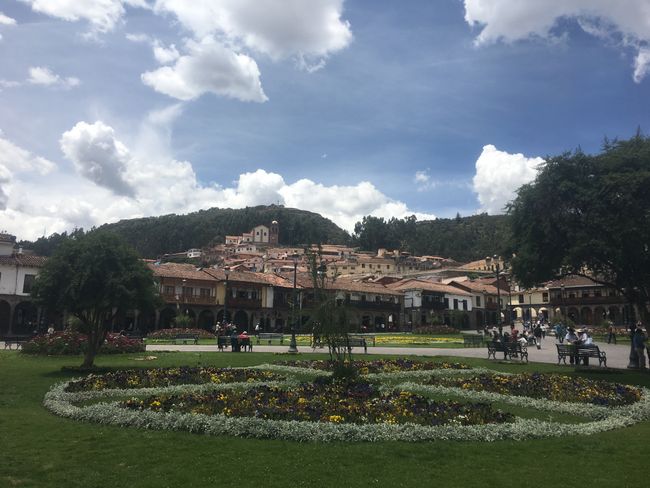
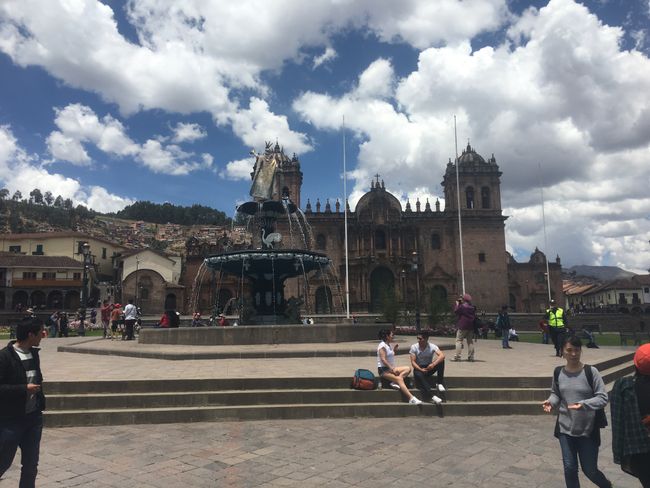
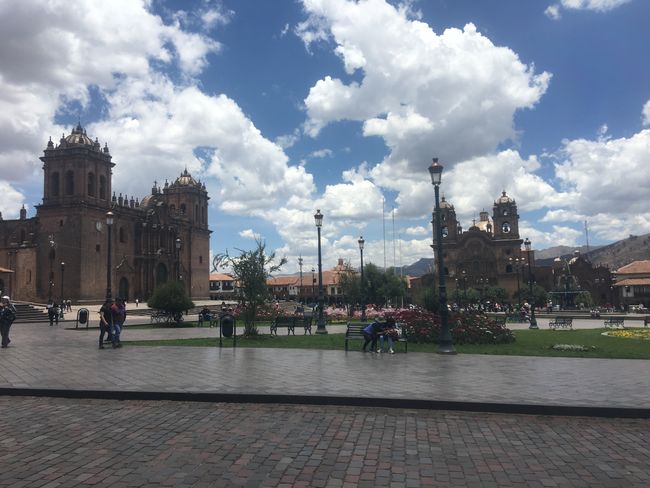
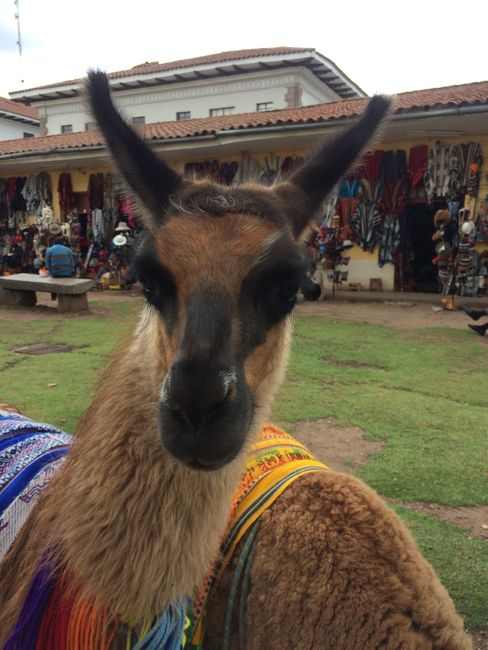
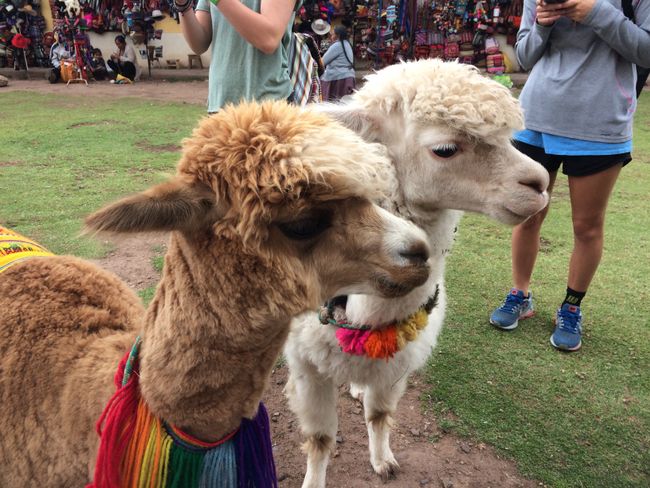
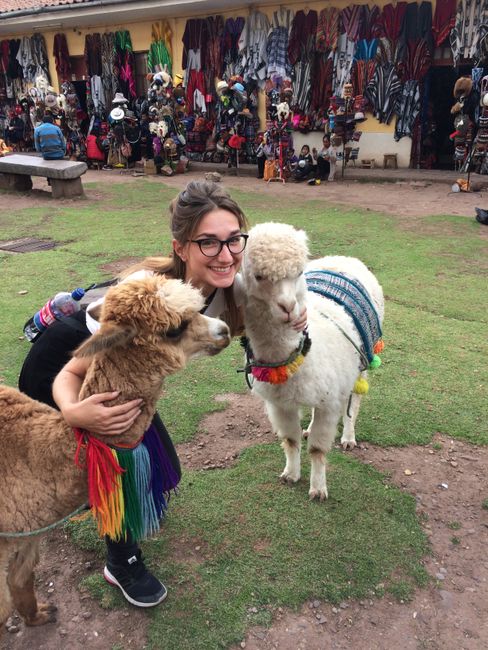
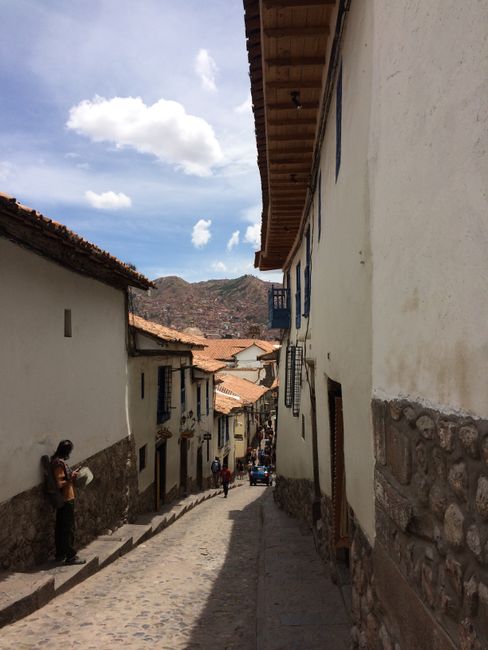
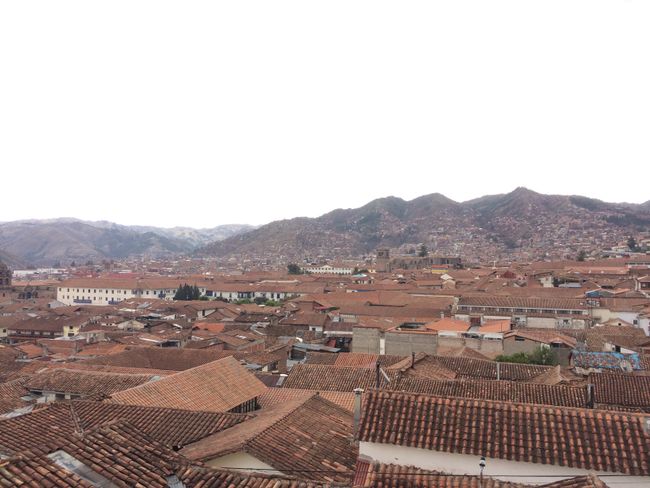
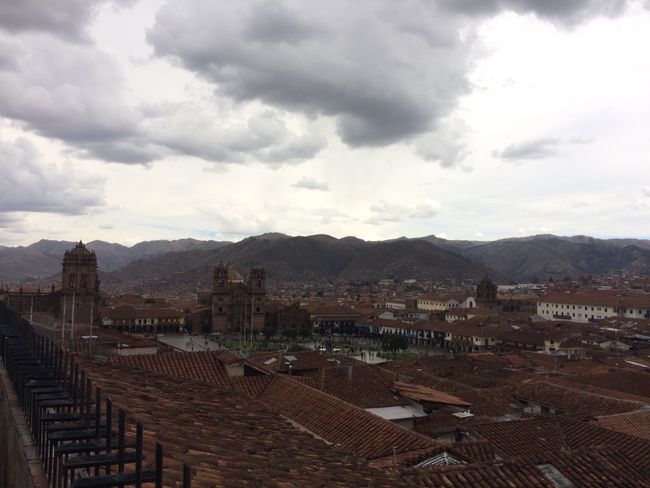
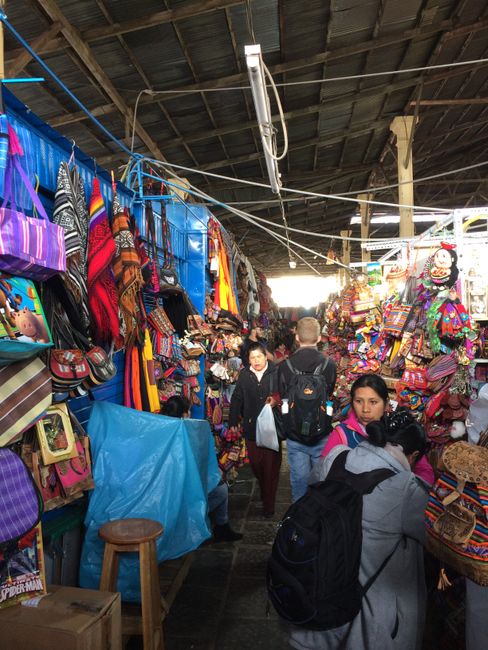
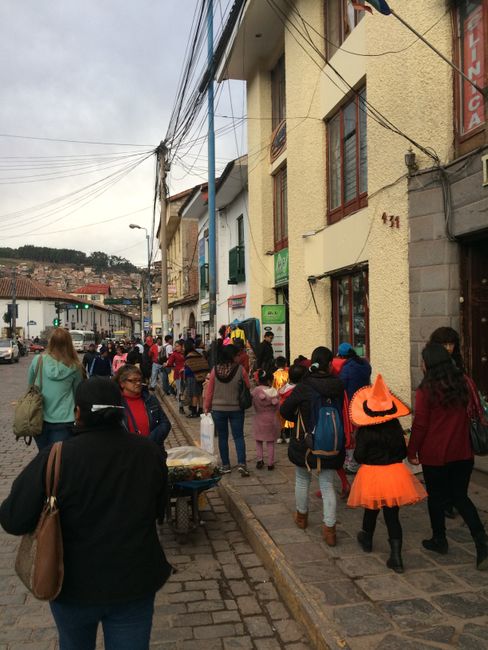
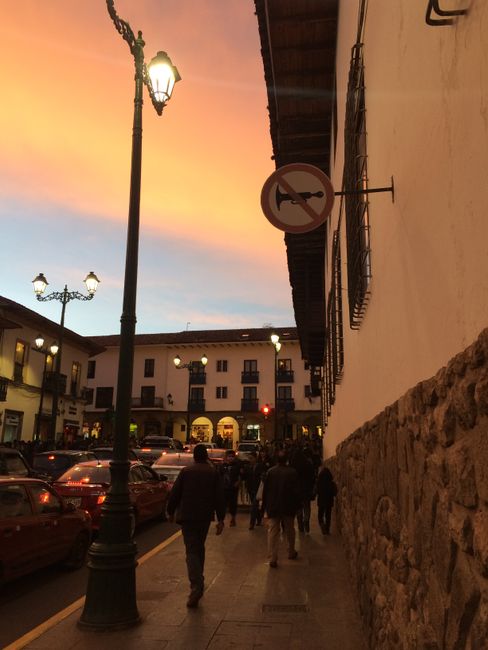
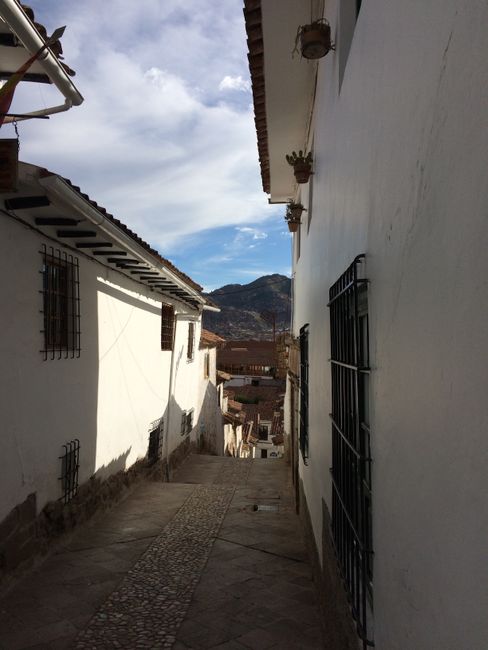
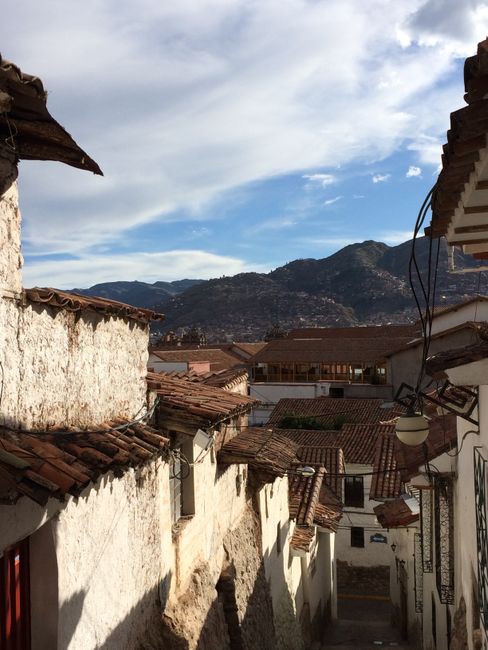
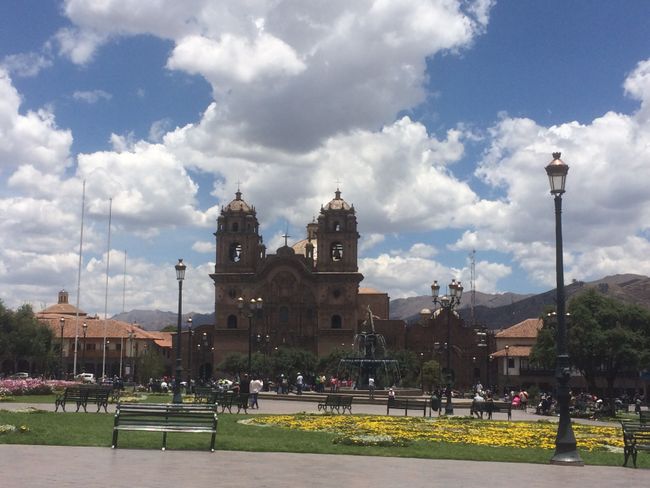
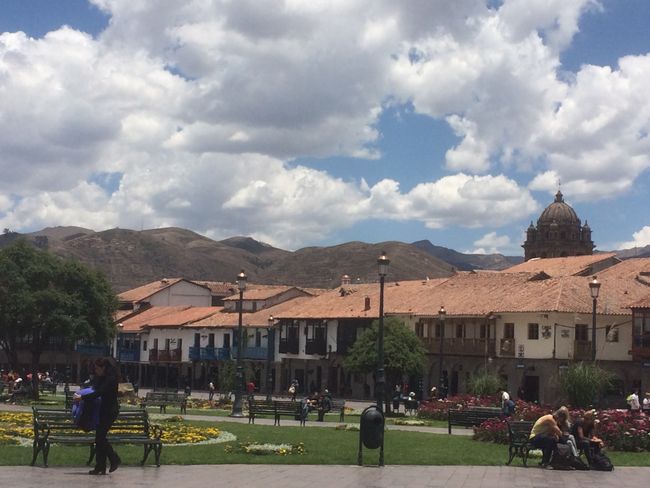
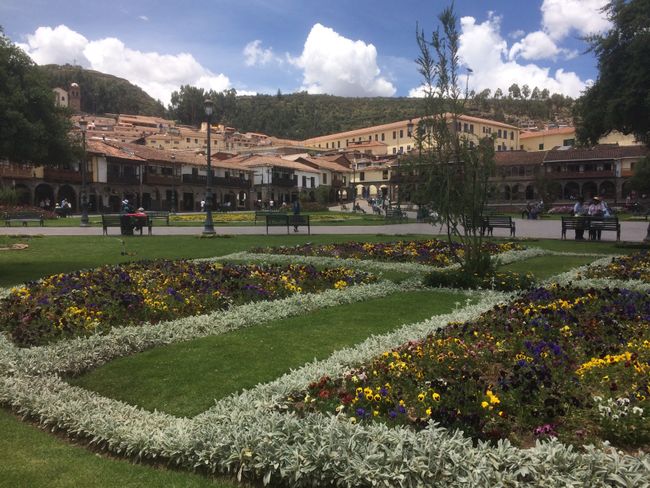
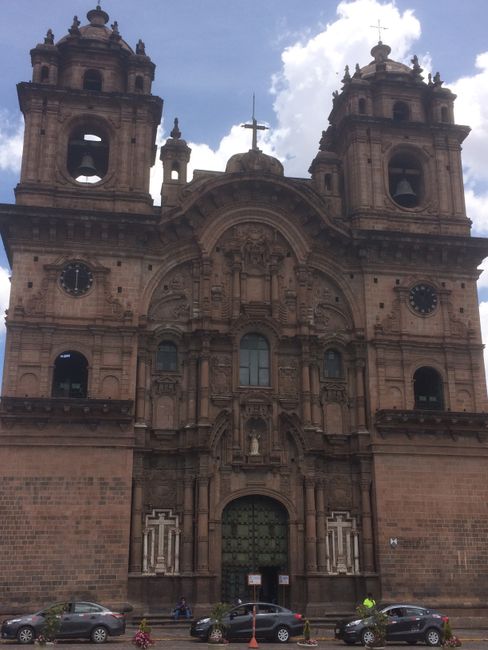
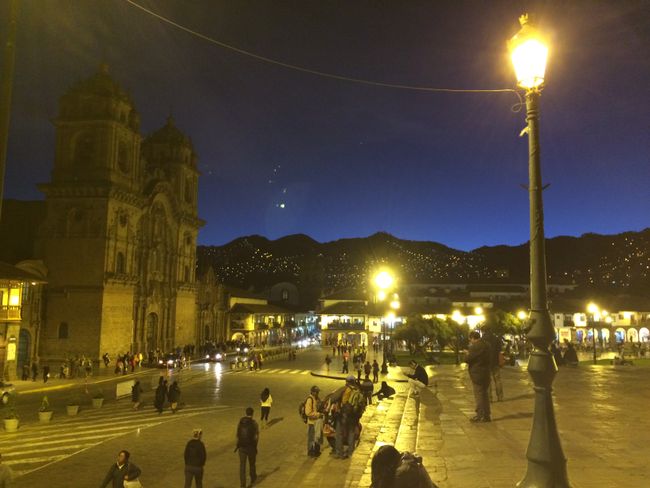
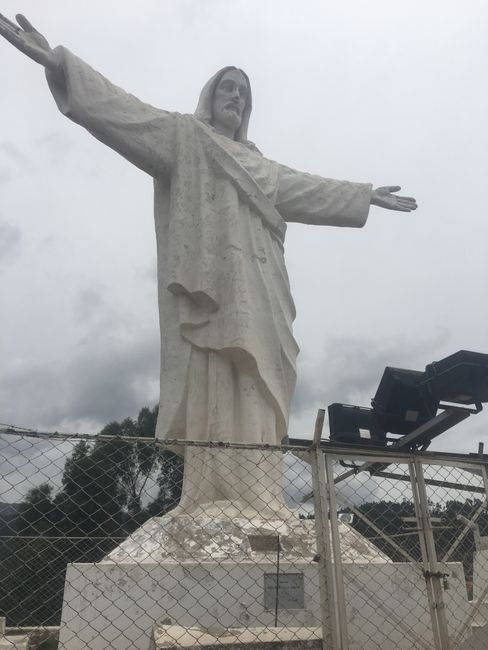
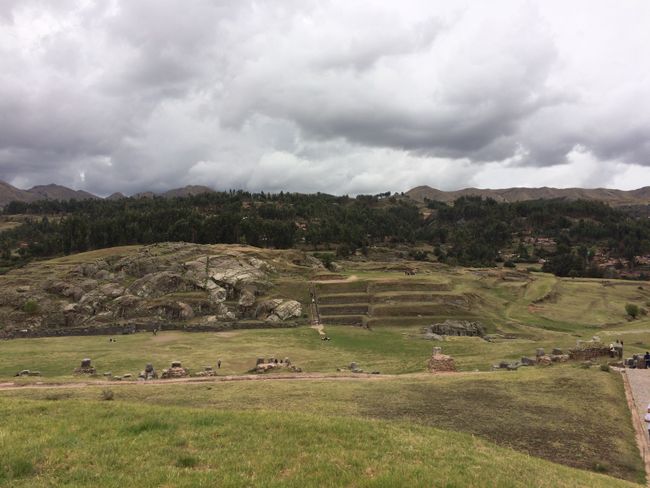
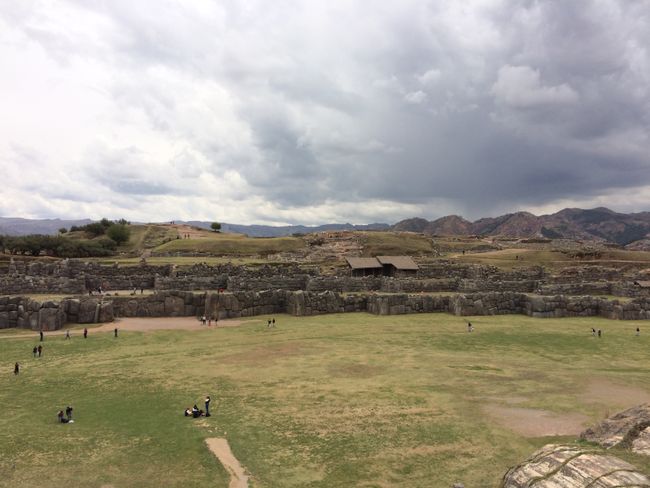
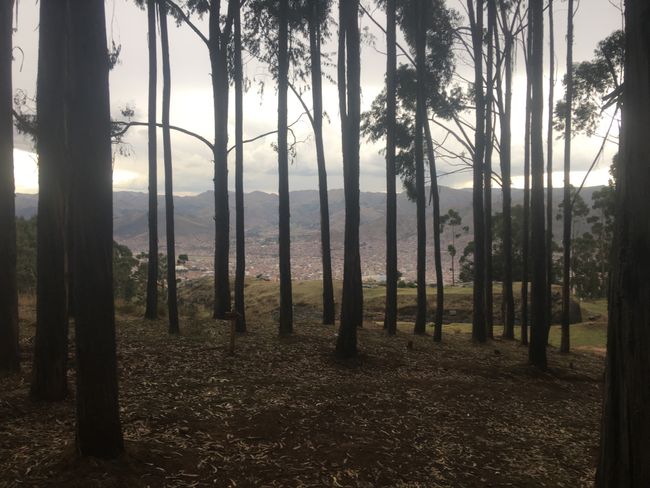
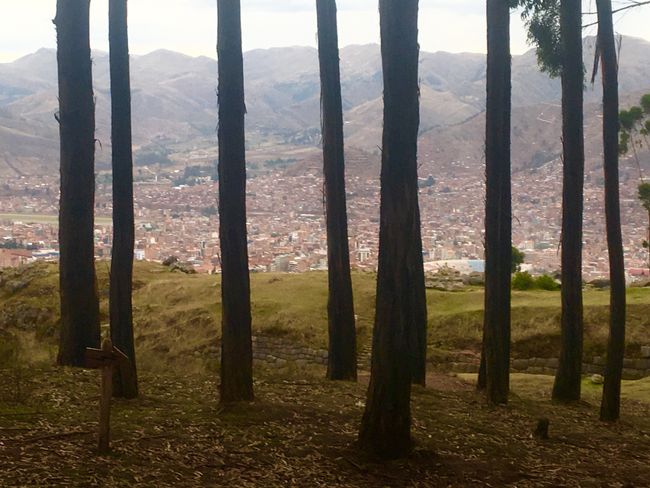
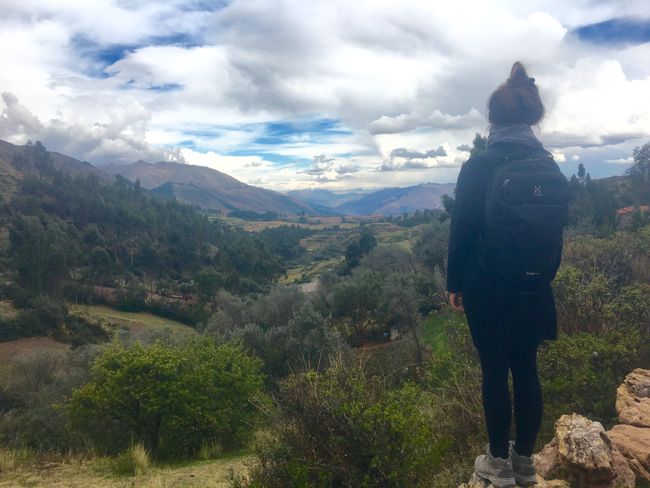
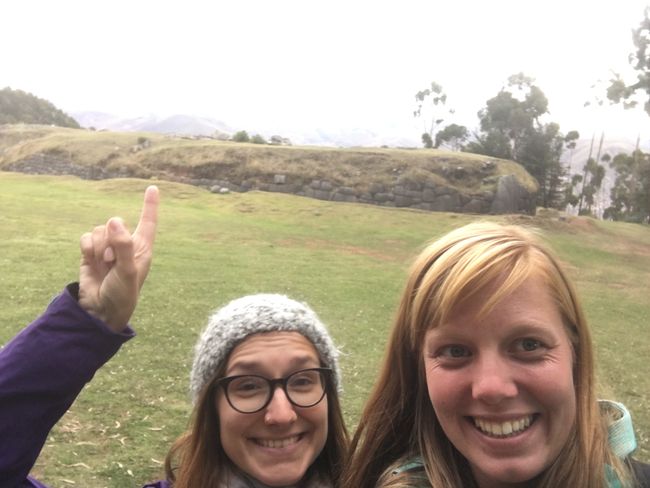
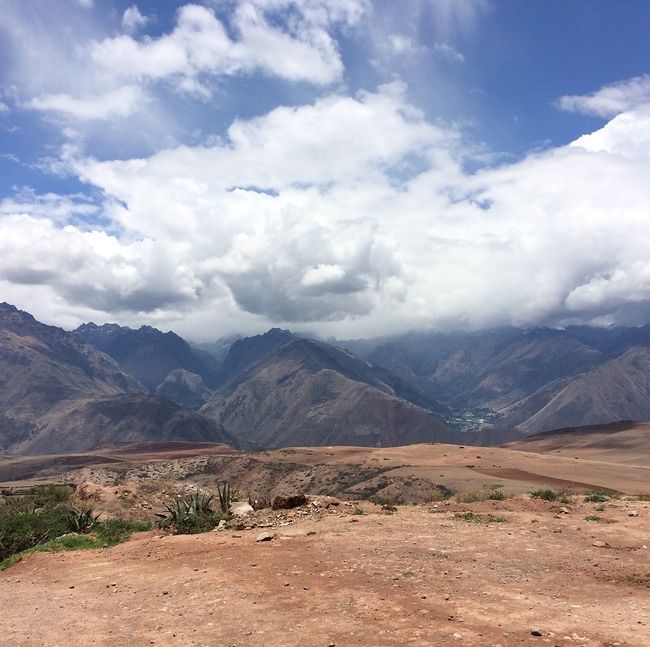
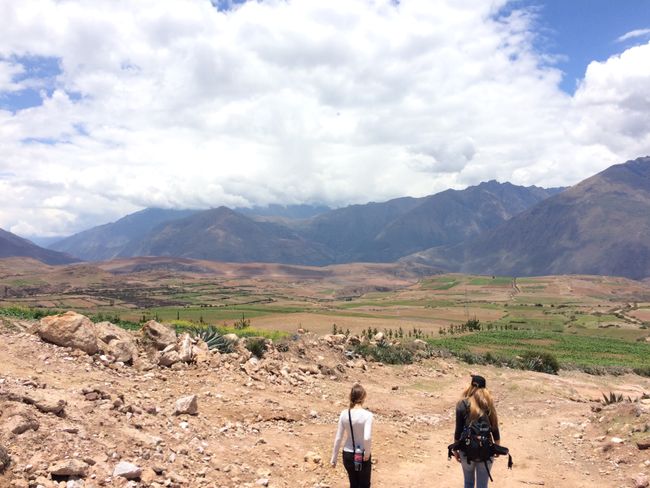
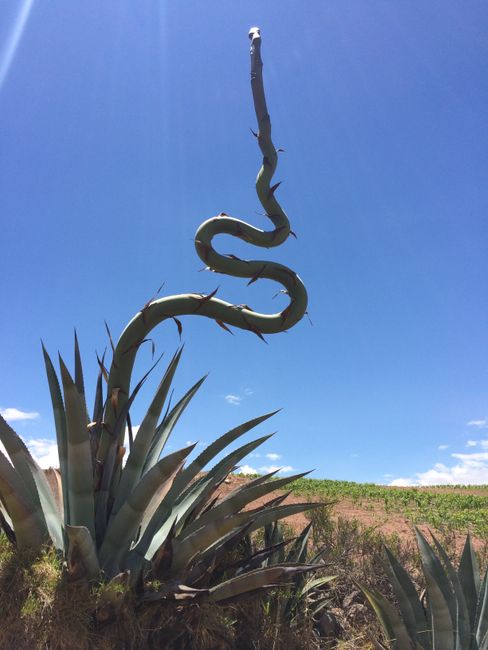
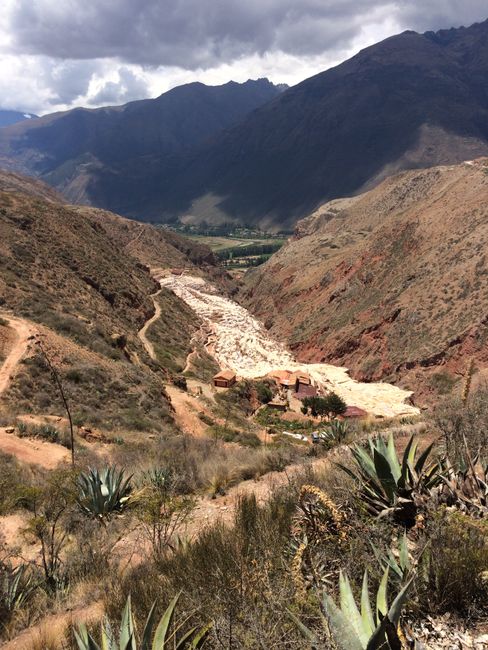
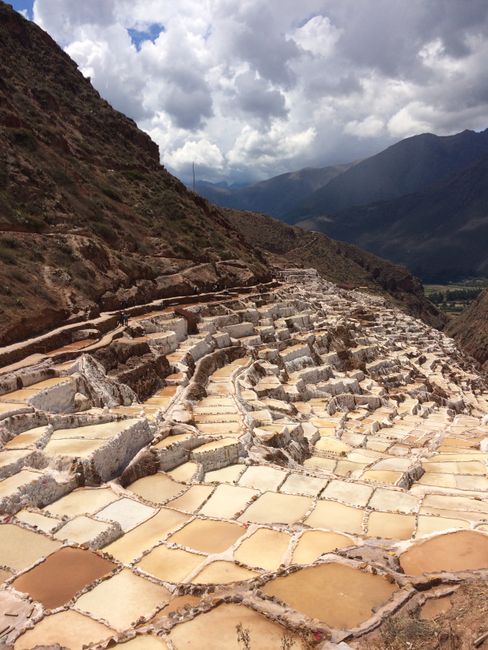
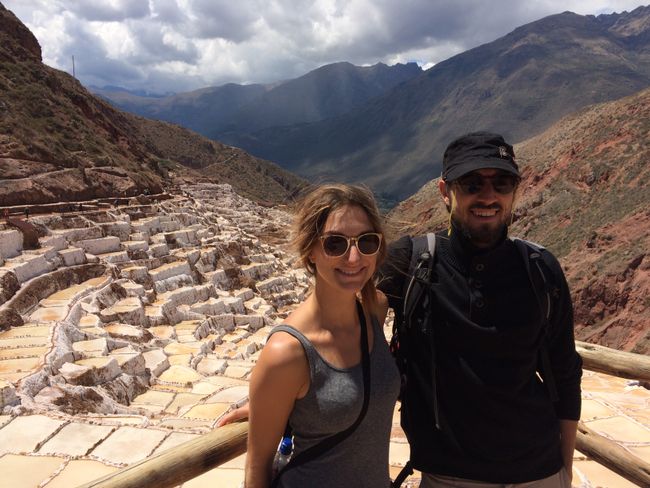
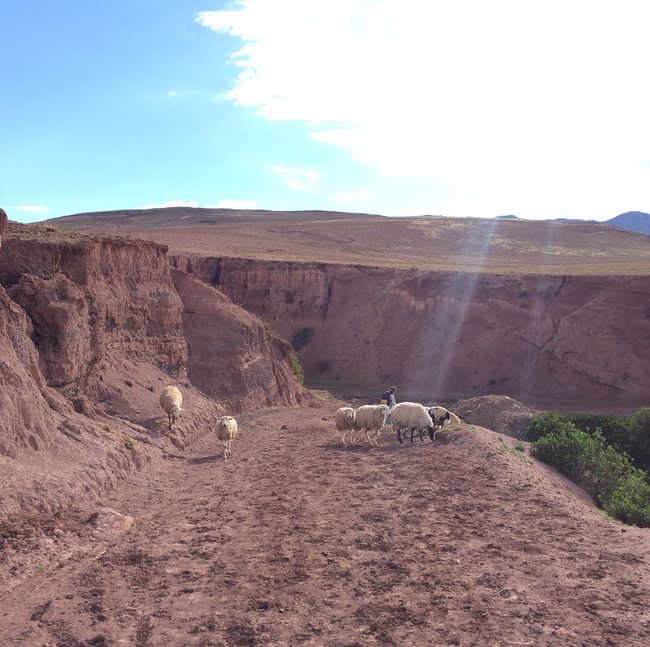
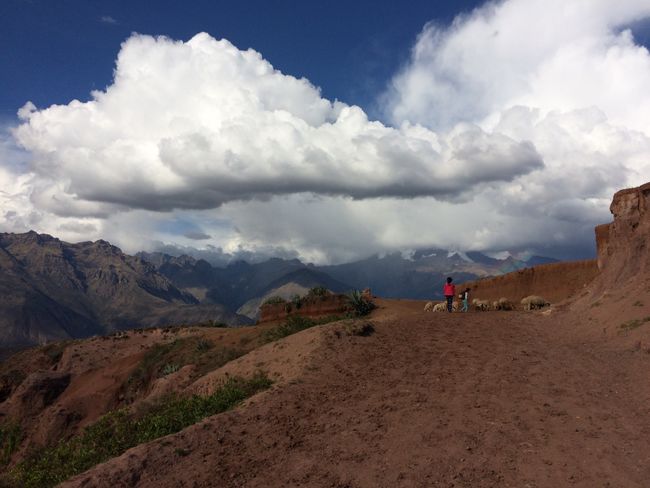
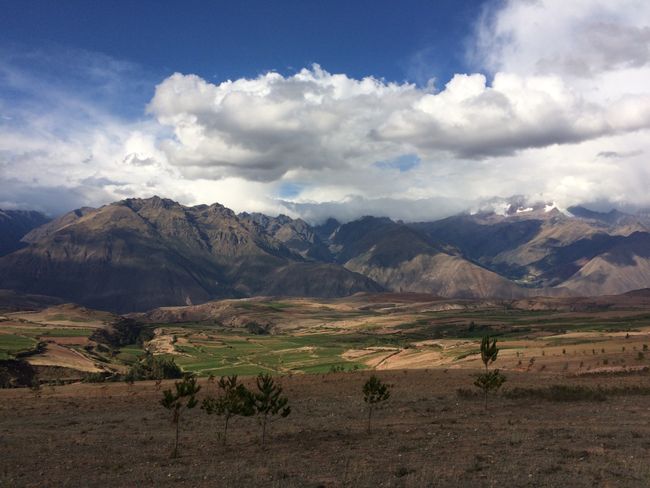
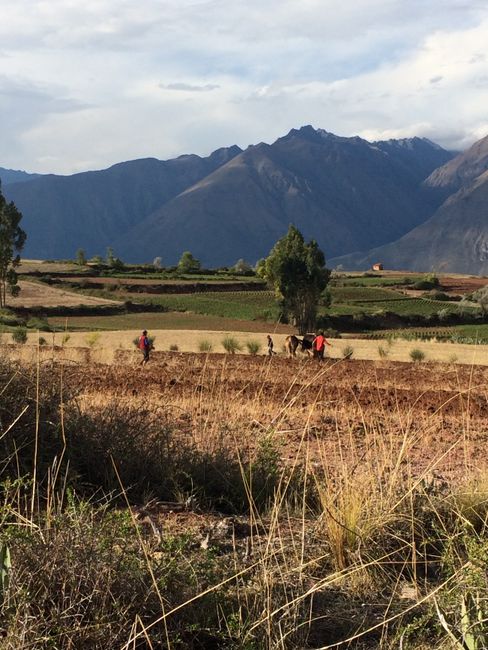
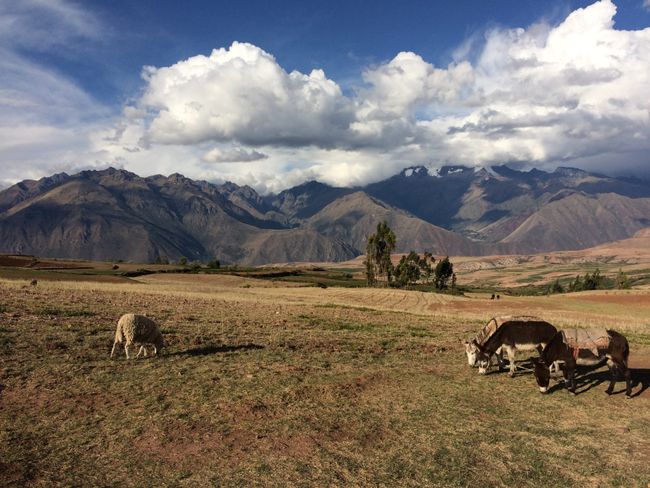
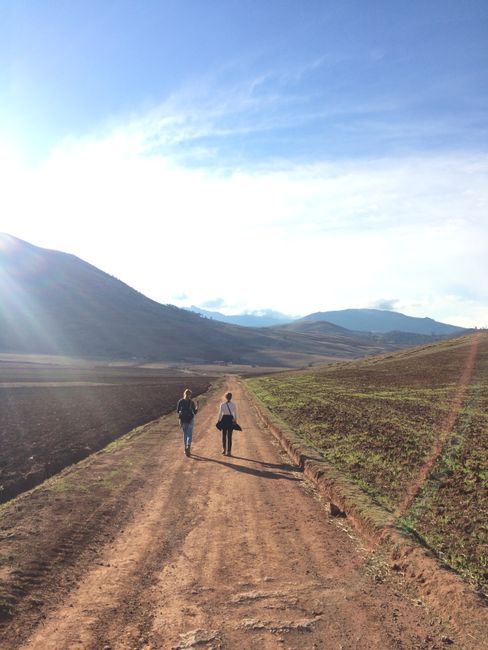
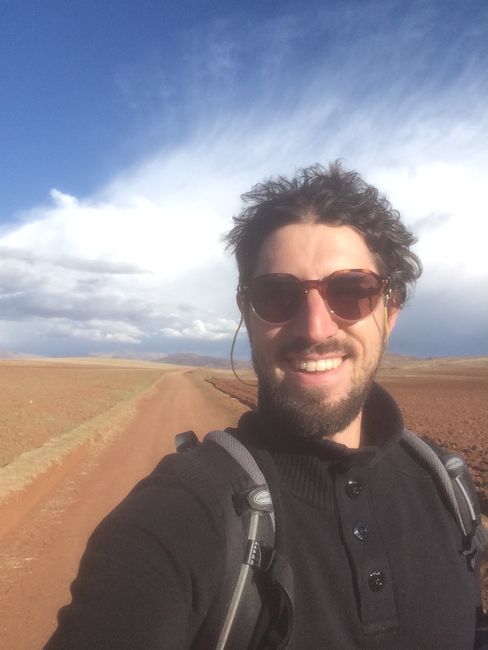
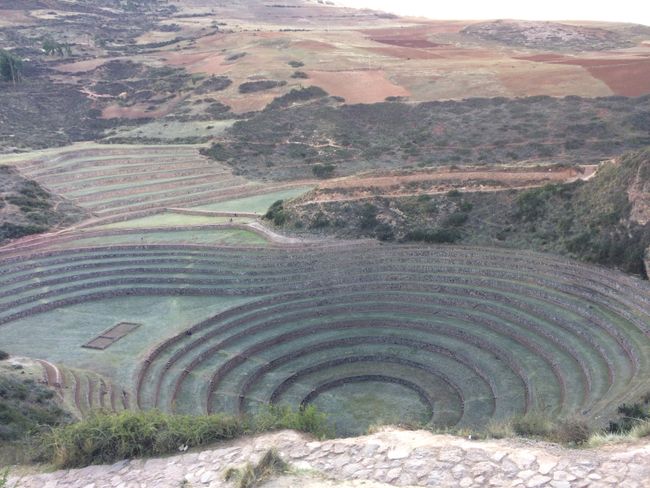
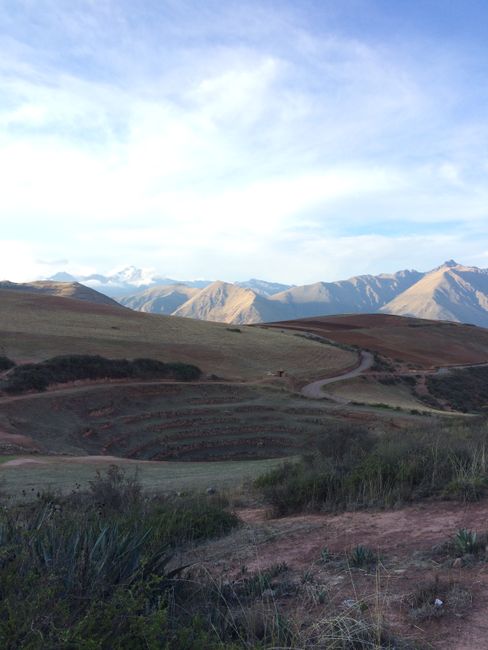
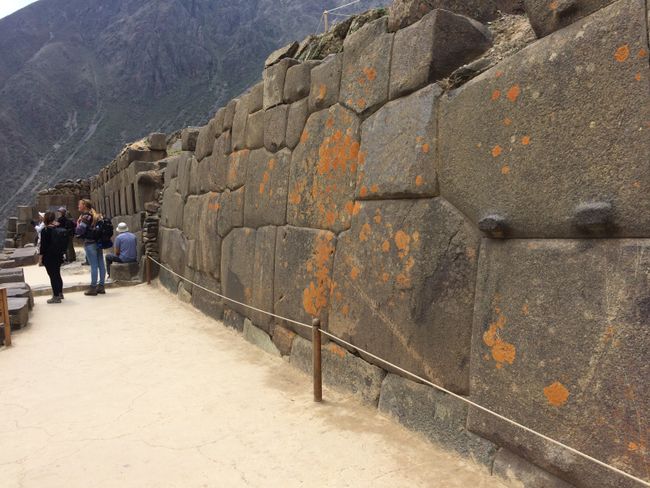
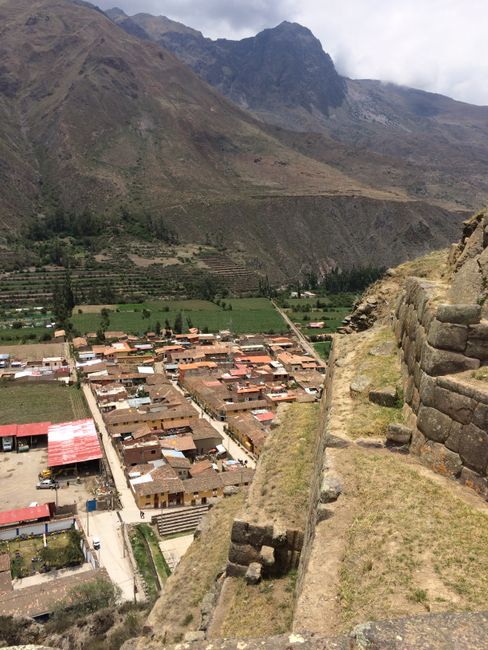
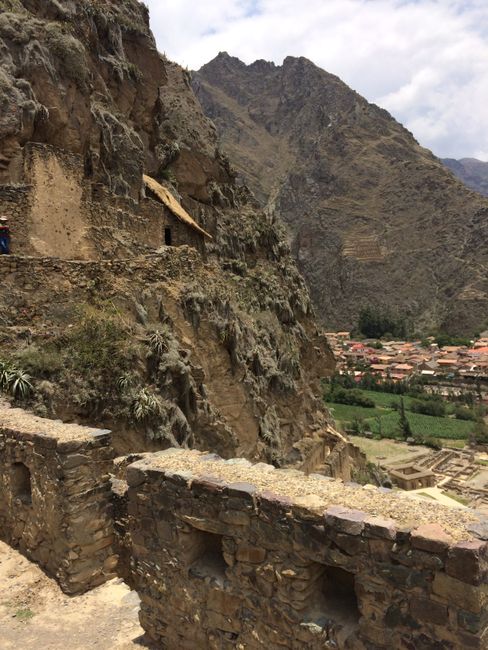
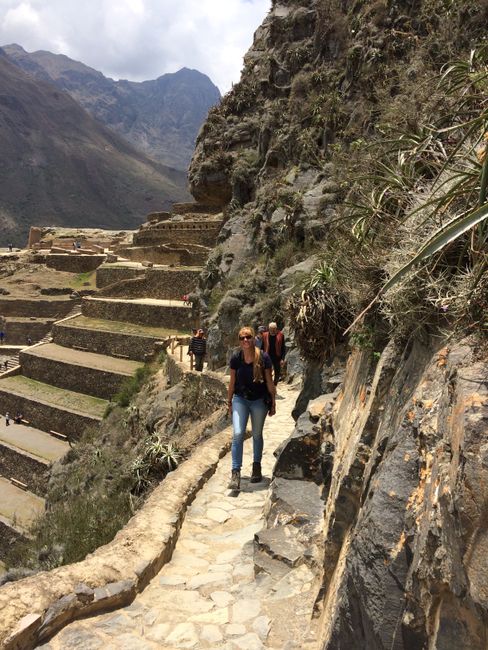
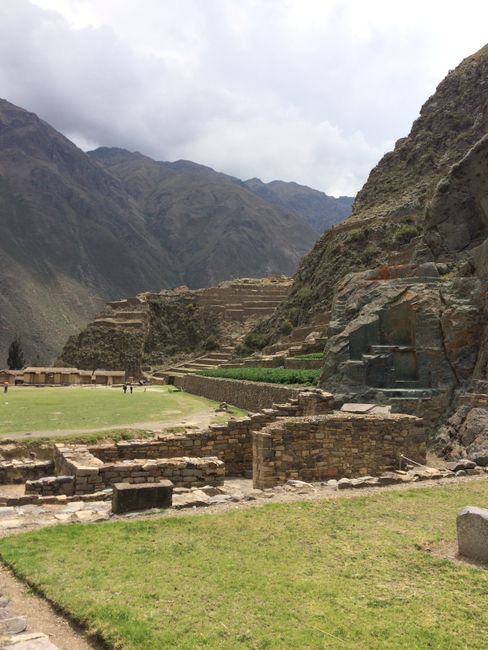

Sabskrip to Nyusleta
After a bumpy night drive with little sleep, we arrive in Cusco at 7am. We get into the next taxi, drive to the hostel and are surprised: In a small side street above the city center, a cozy hostel with its own creperie awaits us, with the beautiful name La Bohème. For a small amount of money, we can also have breakfast here and are amazed, because there are fresh, delicious rolls, good coffee, limes, sugar and a plate with many crepes. One of the best breakfasts we have had in South America.
After checking into our room, we explore the city and are completely amazed when we see the Plaza de Armas. Beautiful old two-story houses with wooden balconies surround the square, which is adorned in the middle by a large fountain. Only the two churches with their impressive exteriors break the uniform picture and make the overall construct even more impressive. Some well-known fast food chains are located in the old houses, but their company logos are only allowed to be attached to the walls of the buildings in small and black and white - this could also be considered in some German cities. Reason: The city center has been declared a World Heritage Site by UNESCO and should retain its original cityscape.
We take these first impressions with us on the Free Walking Tour the next day. Shortly before it starts, we start talking to a very nice girl from Wuppertal. What we don't know yet: we will spend the next few weeks with her: Hello, Kathrin.
Kathrin has previously met a nice Peruvian named Marcus, who offers to take us to the ruins of Sacsayhuaman (Sexy Mama) on the hills above the city the next day and explain the peculiarities of the ancient Inca site to us. Said and done - and so the three of us, accompanied by Marcus, set off from the city the next morning, board a collectivo and rush up towards Sacsayhuaman. Here are the surviving walls of a huge Inca complex, which served as a spiritual center above the city for priests, their students, and other clergy. The special feature of the walls is that the individual edges of the stones are not only cut exactly, but also so smooth as if someone had worked on them with a laser. One really wonders how such work was possible in Inca times. In addition, the stones are partly twice as big as a person. Marcus' ongoing statement: 'Not natural... Pffff.' By the way, he believed that a culture that existed before the Incas already possessed this artistic skill and built Sacsayhuaman.
The next day starts with the decision to test the Peruvian healthcare system. Sebastian is still not feeling better. Coincidentally, there is even a doctor in the hostel today, as other guests are suffering from similar symptoms. The doctor collects everyone and takes them to the hospital. The diagnosis for Sebastian: salmonella, possibly also a parasite. The result: 24 hours in the hospital with a continuous infusion. What a surprise.
Lisa and Kathrin use the time for shopping, planning their joint onward journey, and visiting at the bedside. In the evening, the girls go out for a delicious meal and treat themselves to a sweet crepe with homemade fleur-de-sel ice cream for dessert. Hmmmmmm. Meanwhile, Sebastian gets hospital food.
However, the poor patient is actually allowed to leave the hospital the next morning, has to take antibiotics for the next six days, and is greeted back at the hostel by Lisa, Kathrin, and Manuel - our absolute hero in the hostel, who anticipates our every wish - with a delicious sugar crepe. But he can't do much more than rest anymore. Meanwhile, the girls visit other nearby Inca sites, of course all not natural!! Pfffff!
The Sacred Valley of the Incas: In the meantime, the women have organized everything, so our little travel group sets off to Ollantaytambo the next day, as Sebastian likes to say (actually it's called Ollantaytambo). This small, somewhat dusty village in the middle of the Sacred Valley is only 2 hours away from Cusco and serves as a good base camp for day trips to the surrounding area as well as for the onward journey to Machu Picchu. During our 3-day stay, we visit the salt terraces in Maras, from there we hike on our own through the countryside to Moray, another Inca site that is a mixture of a football field and a Roman forum. Of course, numerous taxi drivers offer their services, but no thanks, and our several-hour hike is really worth every effort, because we see enchanting nature. Is the taxi driver already waiting for us in Moray? We speculate, but in the end, we don't see him anymore. But a collective taxi is there, which is happy to take more people than there are seats available. So we chug along with heavily packed, traditionally dressed women towards the highway, because that's where we have to climb into the next vehicle. So we make our way back to Ollanta.
Then the time has come: we say goodbye to Ollantaytambo and take the train to Aguas Calientes, the village at the foot of Machu Picchu.
Sabskrip to Nyusleta
Ansa
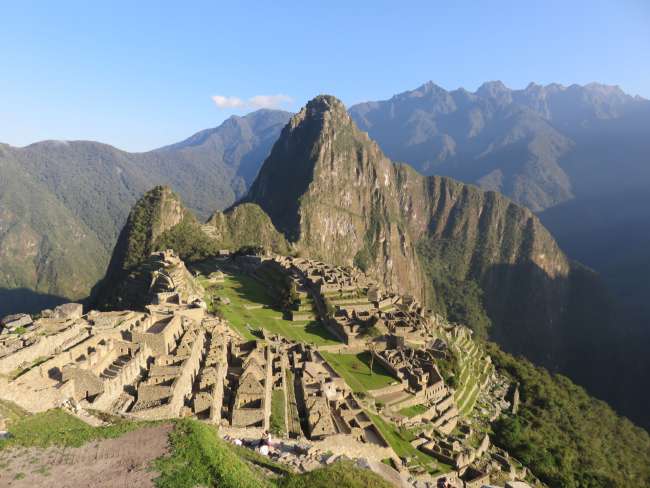
Travul ripɔt Peru na Peru
